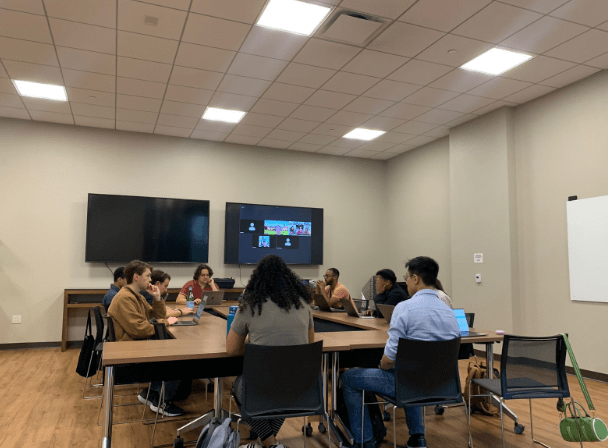Diego Kagurabadza ’25, incumbent Undergraduate Senate (UGS) Chair and Associated Students of Stanford University (ASSU) Executive President-elect, presented the Graduate Student Council (GSC) with two bills concerning legacy admissions and ethical spending at their Tuesday meeting.
Kagurabadza first presented the “Joint Resolution on the Status of Admissions Preferences” bill, which reaffirms the October of Affirmative Action resolution that called for the elimination of legacy preferences in the admissions process.
Kagurabadza noted that it allows Stanford to be a part of the national conversation alongside other elite institutions and shows support for the State movement. The California State Assembly is currently considering the prohibition of legacy and donor admissions.
“I think we hear a lot about Stanford as being innovative and as being a first mover. On an issue that’s of such national and state importance, I think it’d be nice for the university to commit to that tradition,” Kagurabadza said.
According to Kagurabadza, Class Action, a national organization devoted to ending legacy admissions, approached him, asking that Stanford be a part of their national campaign. He noted that of eighty higher education institutions in California, Stanford University is one of seven that practices legacy and donor admissions.
Graduate School of Business representative Chris West raised concerns on the recent Supreme Court decision that removed race from affirmative action considerations, while other factors like gender and sexual orientation remain. He suggested that those who no longer benefit from affirmative action as it currently exists could still benefit from legacy admissions.
Kagurabadza empathized with those concerns regarding students from minority backgrounds but noted that affirmative action is not connected to legacy and donor admissions. He reiterated the ongoing influence of other identity-conscious admissions, despite the Supreme Court ruling.
He underscored that when considering racial demographics, the proportion of legacy students from minority groups is small. Citing National Bureau of Economic Research data from, 70% of those who benefitted from legacy and donor preference were White or European.
“I don’t think you ‘would need the end of race-conscious admissions’ to also demand the end to this practice,” Kagurabadza said.
Kagurabadza said the hope is that the resolution sparks more action and puts some pressure on the Faculty Senate to review and agree to the initial demands made in the fall.
Kagurabadza also presented the “Joint Bill to establish a Committee on Ethical Spending.” This bill proposes the formation of a predominantly student-run committee tasked with identifying and recommending against purchases or investments from unethical vendors to VSOs, ASSU funding committees and the Stanford Student Enterprise (SSE).
The committee would also investigate allegations made by students or anyone in the broader Stanford community about where ASSU funding is spent. He said any recommendations made are purely advisory and will be publicly available on the ASSU website which VSOs can ultimately reject.
West questioned the feasibility of monitoring and enforcement from an investment perspective where there are many layers and intermediaries involved. However, he suggested that financial incentives would possibly increase adherence to the recommendations despite the added difficulty.
Perry Nielsen Jr., a second-year master’s student in health policy and the Cabinet Director for Graduate Student Affairs, suggested that any recommendations made by the proposed committee should not be too complicated.
Kagurabadza reiterated that this bill does not suggest that considerations of ethical financial practices do not exist, but would now allow students a channel to voice their concerns and provide input.
Additionally, the GSC will certify election results on May 7. The last official meeting of the current GSC and transition meeting for the newly elected members will be held on May 21.
Leon de Souza, the Assistant Elections Commissioner, said that voter turnout was about 37%, almost doubled from the previous year. All annual grants passed and the Statement on Divestment was approved.
There were two write-ins on the ballot – Laurel Kim J.D. ‘24 and Natali Barakat M.D. ‘28 of the Law School and Medical School respectively. They must now confirm if they choose to join the GSC.
There were five different funding requests to the GSC, including the Stanford Law School Drama Society’s request for their MuSLSical afterparty and the Women In Mathematics, Statistics, and Computational Engineering’s job panel. The Black Engineering Graduate Student Association’s recommended amount for their Happy Hour was initially lower than their request, but the councilors motioned to allow the full amount. All five requests were approved in full upon voting.
